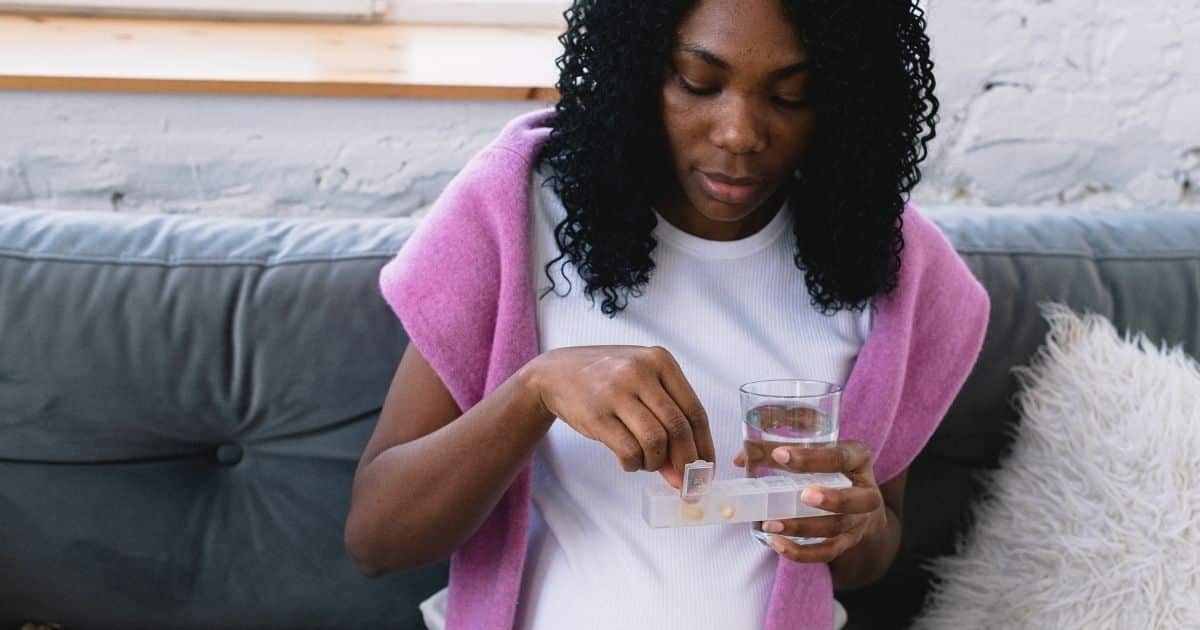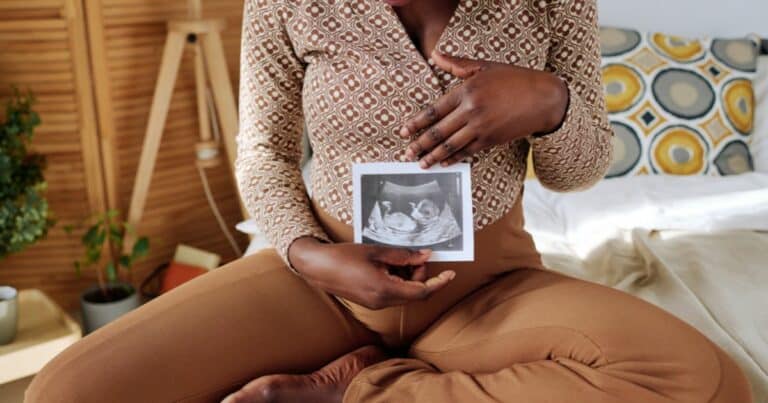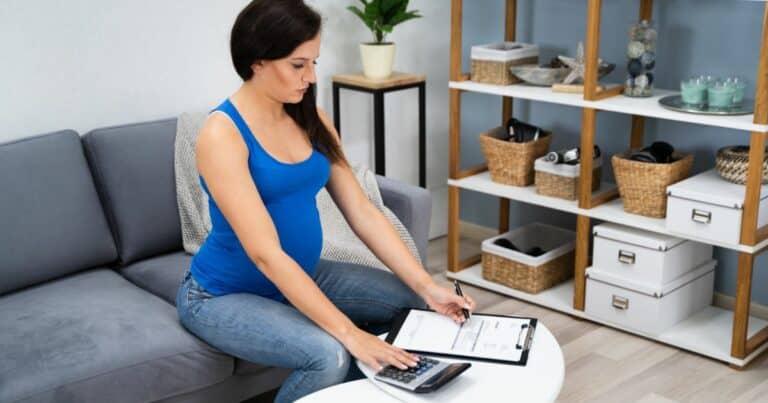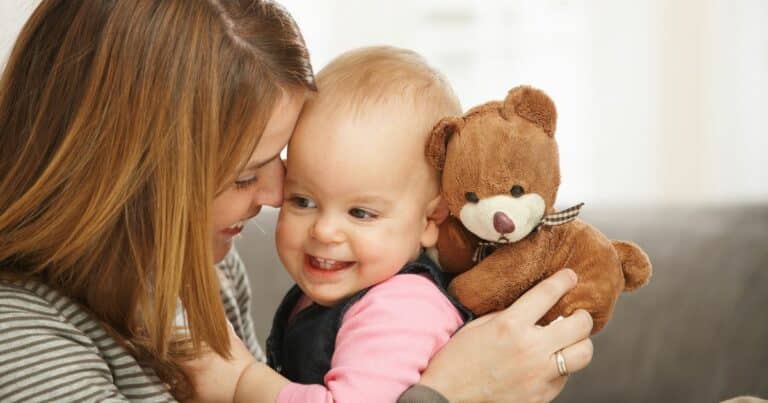
As a single woman embarking on the incredible journey of motherhood alone, I understand the unique set of challenges and joys that come with this path. In today's world, fertility options for single women have expanded, offering a multitude of choices and opportunities to build a family on our own terms.
In this article, we will explore the empowering landscape of fertility options available to single women.
Further reading: Support for going through pregnancy alone.
The first steps
If you’re a single mother who feels like you would like to have more children and are considering expanding your family using donor sperm, I have one piece of advice for you ...
Go to your GP and get a referral for a fertility specialist.
An initial appointment and a few simple blood tests will quickly let you know what your options are and whether you have the luxury of time; that you should be doing something now to protect your options for the future (such as freezing your eggs); or that you need to take action now.
So assuming your fertility results are positive, what are your options if you want to have children via donor conception?
Options to have children via donor conception
ID release donor
In Australia it’s illegal to be an anonymous donor.
To protect any resulting children all donors need to be identifiable when a child turns 18.
It is super important for the children to be able to find and connect with the donor if that’s something they want to d. It helps prevent the trauma experienced by previous generations who, after finding out they are donor conceived, had no way to find out anything about their genetics or who they are as a person.
All fertility clinic recruited donors, local or international, will be “ID release donors”.
With a clinic recruited donor you generally have a list to chose from (some clinics have developed apps to view all donors) with basic demographic information (eye and hair colour, height, ethnicity, etc), full medical history and if you’re lucky, a toddler photo and some personal answers to a list of questions.
All donors are screened and cannot be paid for their donation to ensure it is an altruistic act.
Known donor
A known donor is usually a friend or someone in your expanded social circle that agrees to be your donor.
While a known donor has benefits over ID release, it also comes with unique legal challenges. Make sure you do your research and really think through the sort of relationship you would want with the donor in the future.
Recruited known donor
A recruited donor is someone you meet and get to know before they become your donor, but not someone you had any relationship with prior.
These donors are commonly found through apps, forums or Facebook groups. There is no regulation or screening of these donors. This means it can be a great option financially and to allow a relationship with the donor for your child, you need to embark on this path with caution.
There are some genuinely nice men who want to help women have a family, but be on the lookout for red flags, such as:
- Someone pressuring you to be your donor
- Anyone with too many donations (each state has a family limit for clinic recruited donors between 5 and 10 for context)
- Someone insisting on natural insemination (conceiving via sex is not a donation and has very different legal and financial implications - DO NOT DO THIS!).
Further reading: Need to know facts about getting pregnant with a sperm donor.
Get legal advice with fertility options for single women
If you opt for a form of known donor make sure you have a lot of open and honest conversation before committing to anything. And, if possible get legal advice and a contract drawn up by a lawyer who specialises in donor agreements.
You’ll want to address all of the hard questions early on so you don’t have any nasty surprises as the children get older such as:
- What happens if you or the donor gets into another relationship
- What happens if you want to move
- How much the donor will be in your children’s life
- How the donor will be referred to
- How public you’ll be with who the donor is
- Access to donor siblings
- What happens if you pass away
Once you have selected which avenue you are taking for a donor there are three main options for conception (assuming fertility wise you have no issues).
Main options for conception
AI - Artificial insemination (AKA the turkey baster method)
This is usually done at home or a hotel, and involves inserting the fresh donation yourself via syringe.
You would usually do a few inseminations over a couple of days, at the right time in your cycle, which you’d identify via ovulation tracking strips you can buy from the supermarket.
This is the closest thing to having sex and has similar success rates. Some women are lucky enough to be successful first time, some take a few months, and some will end up going for professional fertility treatment.
Some fertility clinics even offer this service with their recruited donors for woman who are looking to conceive as naturally as possible.
IUI - Intrauterine Insemination
This is performed at a fertility clinic.
Your cycle will be closely tracked and when it’s determined you are ovulating your fertility specialist will insert the sperm directly into your uterus via a small tube that goes through the opening of your cervix. You’re awake for the procedure, it’s a little uncomfortable, you’ll have the urge to put your legs up the wall afterwards to help with gravity, but it’s generally over and done with in a few minutes.
There’s also the option to have fertility medication to help your follicles (eggs) grow and develop if needed for a better chance of success. However, if you respond too well your cycle may be cancelled as they won’t proceed if there’s a likelihood of multiples.
A lot of women with no known fertility issues will have success with IUI. If you don’t have success after two rounds then you should become eligible for the Medicare rebate if you move to IVF.
IVF - In vitro fertilisation
This is the big guns.
It is usually recommended if you are:
- Older than 35
- Have known fertility issues
- Are confident you want siblings.
In this process you are creating embryos which will then be transferred to hopefully make a baby.
You’ll be administering hormones, usually in the form of multiple injections a day. Your fertility specialist will monitor you very closely via internal scans (commonly known as “dildo cam” or “Wanda”). When your body looks like your follicles/eggs are ready you will undergo egg collection, where the specialist removes any eggs from your ovaries under general anaesthetic.
The eggs are then fertilised with the donor sperm (known or clinic recruited). Then, any that turn into a blastocyst (still normally dividing and progressing embryos at day 5/6) will be either transferred back into your uterus (similar to IUI) or frozen to be transferred later.
There is also a form of IVF called ICSI. This means the embryologist injects one individual sperm into the egg, rather than letting the sperm and egg get together on their own in the petri dish.
Have counselling
If you have children from a previous relationship you’ll also want to think through how the family dynamic will work. This includes how you’ll explain to your children that some children have a parent who doesn’t live with them and some have a donor.
Everyone who conceives through a clinic needs to complete mandatory counselling to help them process the unique challenges that comes with donor conception. It’s a really great idea to get specialised counselling before embarking on this journey even if you are using a known donor at home.
Further reading: Preparing financially for maternity leave as a solo mum.
Final words: Fertility options for single women doing motherhood alone
Unfortunately there are no guarantees with any form of fertility treatment.
Some women have success with AI at home, some won’t have success after multiple rounds of IVF and will need to explore other options such as donor eggs, embryos, surrogacy or expanding their family via fostering.
It can be a hard road for some women. Ensuring you have a good support system in place to help you navigate the emotional rollercoaster that comes with this journey, as well as the multiple appointments, is really important.
Further reading: What are the guiding principles for egg donation in Australia.













